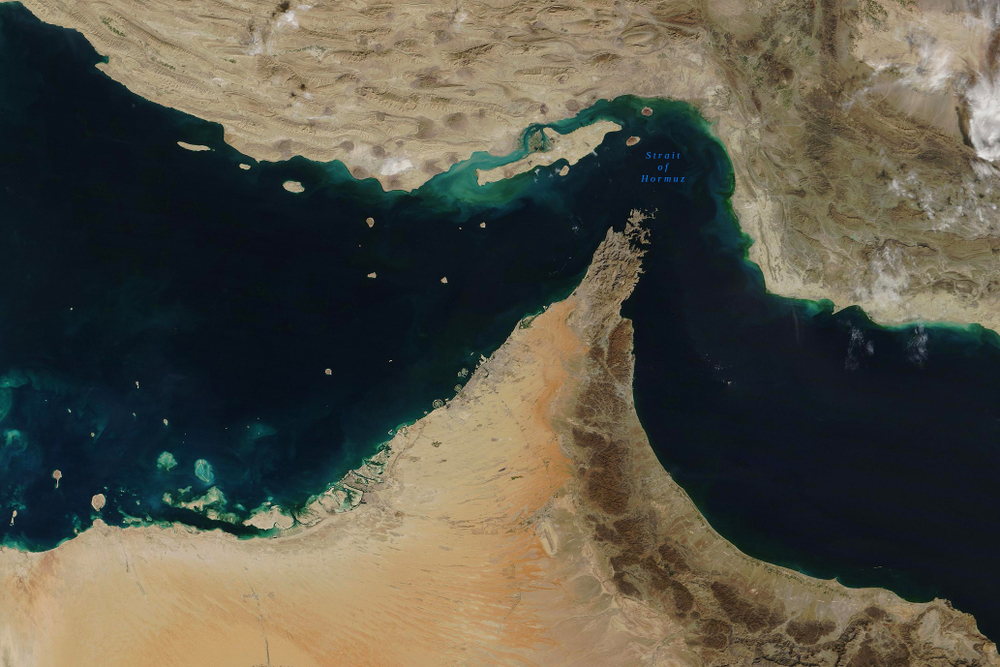Although Iran has frequently threatened to close the Strait of Hormuz to international navigation, its recent reiteration of these threats has provoked strong reactions, given that it coincides with a stalemate in the Vienna nuclear talks. There is moreover growing domestic pressure in Iran to halt negotiations, heightened tension between Iran and Israel, and continued Iranian rhetoric on avenging the killing of Qassem Soleimani. Although these new threats have been made informally, they cannot be ignored given Tehran’s preference for veiled warnings that eventually are reflected in developments on the ground, in a manner that allows the regime deniability of responsibility.
On April 16, the representative of the Supreme Leader of the Republic, Hossein Shariatmadari, once more alluded to the closure of the Strait of Hormuz in the Iranian newspaper Kayhan. The implied threats were targeted at South Korea, in response to the freezing of 7 billion US dollars, owed for imports of Iranian oil. In the newspaper’s editorial titled “Let’s start a ban of South Korea”, Shariatmadari explicitly called for closing the Strait of Hormuz to South Korean vessels in response to their refusal to release Iran’s financial dues under the pretext of US sanctions. South Korea’s Ministry of Foreign Affairs summoned the Iranian Ambassador to protest the Kayhan editorial, but he argued that the editorial did not express the official position of the state. Significantly, Shariatmadari continued his threats in a radio interview, where he states that closing the Strait is Iran’s natural right and logical response.
Rationale
There has not been an official response from Tehran to these arguments, but they appear to have unleashed a debate in Iran’s media. For example a different newspaper published an article by Mostafa Frogi , which criticized Shariatmadari, and raised the question if it would not be better to settle the issue of sanctions with the US, rather than blocking the passage of ships. This implies the regime is keeping various options open, to improve its negotiating position, both with regard to the Vienna negotiations, and with countries that had imported Iranian oil prior to the reimposition of U.S. sanctions beginning in August 2018. Such a stance can be interpreted in the light of the following context:
Growing domestic impetus to halt negotiations: Calls to halt negotiations on a nuclear deal in Vienna argue that it will have negative repercussions for Iran in nuclear and economic terms, especially if the US administration does not provided assurances that it will not withdraw again from the agreement. The Biden administration has attested it is not able to provide Iran with such a guarantee. Moreover, even if an agreement was concluded, some sanctions would continue to be imposed, which diminishes the gains Iran would make from this deal. Furthermore, Iran would have to make significant concession in order to conclude the deal. Therefore, there are arguments that Iran should expand its range of options to recover its frozen funds abroad, even if this sparks an international crisis as a result of attempts to close the Strait.
Pressuring international powers: Negotiations in Vienna have been stalled by disputes between Iran and the US over the Revolutionary Guard’s placement on the list of foreign terrorist organizations. Iran considers it imperative for the US administration to remove the Guard from the list, to which it was added by the previous Trump Administration as part of its “extreme pressure” strategy in 2019; a strategy that did not force Tehran to change its policies. Washington has indicated that the removal of the Guard from the list is unlikely to happen except in the context of another deal. Thus, Iran’s latest threats appear to be an attempt to exert pressure and a warning that a breakdown of the Vienna negotiations would mean a return to escalation in the Middle East, and the targeting of international interests there, particularly Western interests.
Rejection of tradeoff: Iran has rejected the idea that it should de-escalate conflict in the region, and discontinue efforts to avenge the killing of Qassem Soleimani, in exchange for removing the Revolutionary Guard from the list of foreign terrorist organizations. This position is undoubtedly due to the fact that the Revolutionary Guard itself will not accept such a deal. It would also be difficult for the Iranian regime to retreat after having expended significant resources in supporting its regional allies and the Guards external operations.
Accordingly, even though the latest call for the closure of the Strait of Hormuz targets South Korea, it could be interpreted as a deliberate message to international powers, particularly the US, that the Revolutionary Guard will not halt its regional activities.
Pressuring Israel: Regional and international waters have lately become a theater for an indirect war between Iran and Israel. Israel has been attempting to block Iran from developing its nuclear program, or establishing a presence on Israeli borders through Syria, and through providing support to militias such as Lebanon’s Hezbollah. It appears that Iran no longer rules out this indirect confrontation could extend to the waters of the Gulf. It may be trying to induce international powers, especially the US, to exert pressure on Israel to stop carrying out operations targeting Iran’s nuclear facilities.
In conclusion, it can be said that these new threats, although unofficial, indicate that Iran will not adhere to any internationally imposed restrictions concerning its regional activities, even if a new agreement is concluded in Vienna. It is thereby stressing that the focus of the Vienna negotiations is the nuclear issue and does not extend to other equally important and dangerous issues, including Iran’s regional interventions and its ballistic missile program.


